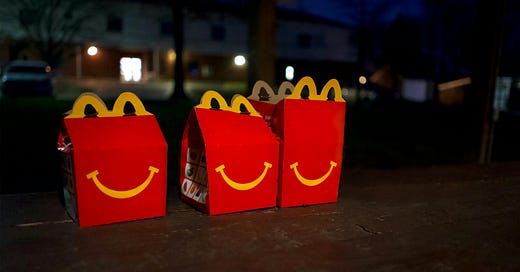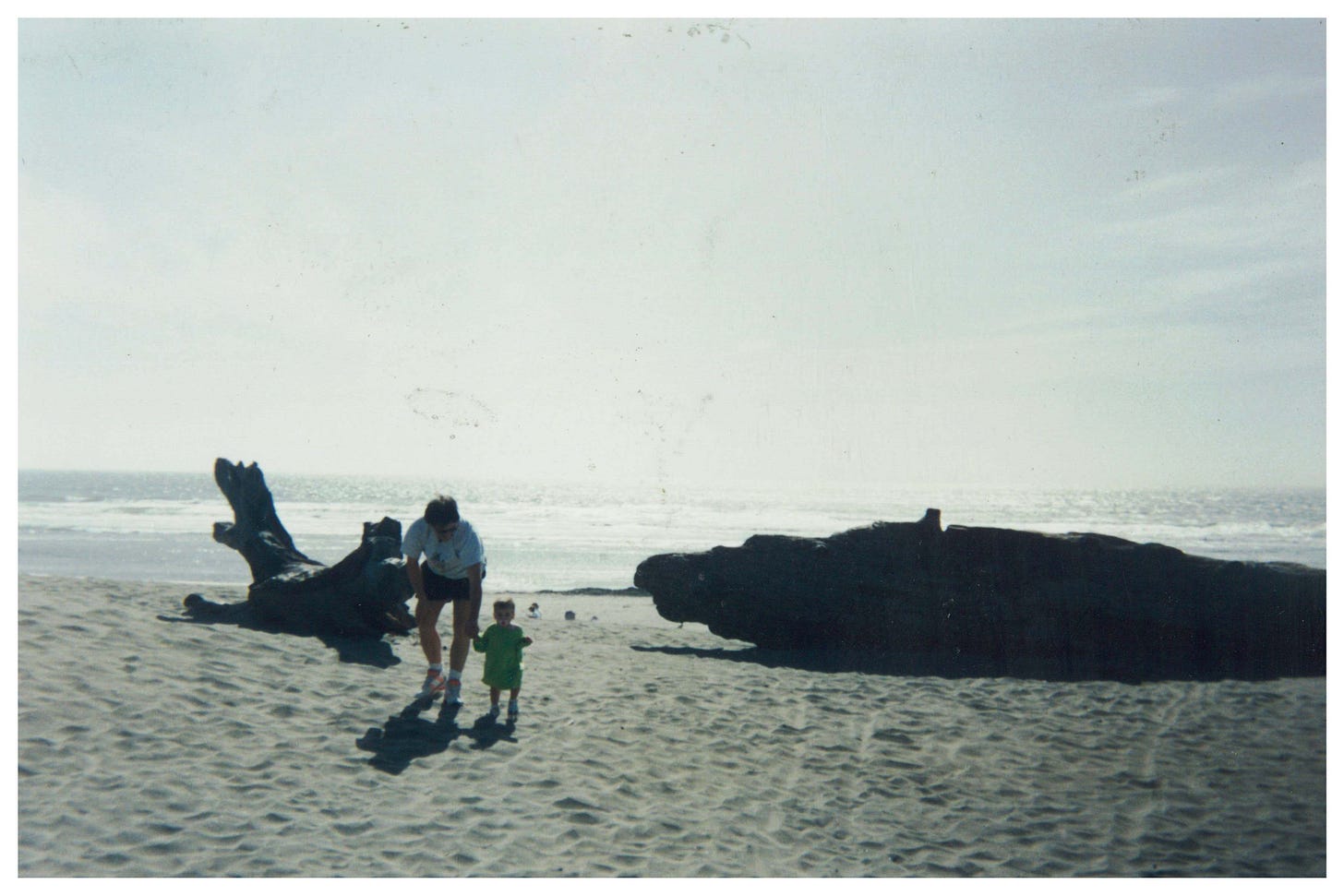There are so many ways others communicate to us that our grief is inconvenient, annoying, or bothersome. We are told to be positive, to move on, to keep our chin up, to forgive, to let it go. We are told to meditate or distract our grief away, and when that doesn’t work, we are judged for our suffering. Or we are simply ignored.
These are all experiences I’ve had many times over. If you’re here as a grieving person, maybe you’ve experienced these things too.
When my dad was sick, two women from the cancer agency came over to our house to talk to me and my sister. My mom remembers these women coming over, but neither she nor I can recall if they were volunteers or professionals of some kind. To my sister and I, it hardly mattered; they were adults who presented themselves as authority figures on what it was like to be a child whose parent had cancer. They were supposed to be there to help us cope.
But right away, I didn’t trust these women, and nothing they did in the hour they spent with us made me change my mind about that. The first thing I noticed was that they chose to sit atop two high-top chairs in front of our fireplace. They could have sat on our couch, or at our level, but they didn’t. Because of this, my sister and I had no choice but to sit on the floor at their feet. This meant that these women were quite literally looming over us.
I didn’t like the way they towered over us with their crossed arms and their heavy perfume and their assumptions. But I played along. What else was I going to do?
I’m not saying this seating arrangement was part of a conspiratorial agreement to make us feel a certain way. I know these women weren’t saying to themselves let’s mess with these kids! Maybe, as a therapist, I am just more aware of these kinds of things and the impact, however unintended, they can have. What I will say is that where and how they chose to sit in relation to us aligned with the overall tone of the visit. Had the interaction itself gone differently, I probably wouldn’t have remembered where anyone sat.
As I’m writing this, I am wondering if things might have been different somehow had I crossed the living room and sat on the couch anyway. Not to be an asshole, but to give myself permission to exist a little bit more. I know my sister would probably have sat with me too. Would that small act have recalibrated the power dynamic for me? Would it have been a way for me to take up some space at a time when I was already feeling so invisible?
But where everyone sat is not why I am telling this story.
I didn’t want to have this visit, but I did what was expected of me. Shannon and I took our places on the floor at their feet. At some point, one of the women said, “Tell me, Danielle, what good things has your dad’s cancer brought into your life?”
Yes, she really asked me this.
Instead of pulling a face or saying something, her colleague sat in tacit agreement. The idea that we ought to be looking for the positive in our dad’s terminal cancer was entirely on-brand for this (and many other) conversations people tried to have with me about grief and death, then and now.
Whatever small truths I might have risked sharing with these women were already wrong before they were ever said aloud.
“We eat more McDonald’s.” I said.
“Good. That’s really good, Danielle.” She said.
Was it though? Wasn’t that another kind of loss? We had more fast food because our family was in a crisis. Even I knew that.
Gold star for me, I guess.
Even then, even at 12 years old, I knew that question was bullshit. That question was another person communicating to me that my true feelings were wrong and burdensome and should not exist. It was another interaction that told me I should be feeding my feelings through an internal assembly line where they could be broken down and recast into something palatable.
I get mad when I think about this story. So does my mom (she wasn’t there during the visit). Who were these women? Did they have kids? Were they “looking on the bright side” of the pain that cancer brought into their lives? Did anyone in their family even have cancer? Or were they just carting around their own resentments and emotional baggage and dumping it on unsuspecting kids who weren’t going to say anything to anyone?
Children don’t have a lot of choices, if any, in situations like this. They do what they can to survive. I survived by pretending I was fine and by doing what other people wanted me to do, which is to say that I tried to make myself as unobtrusive as possible so that I would not annoy or inconvenience anyone. You could say I lived by the maxim: Do what is expected of you and suffer the consequences later, alone and in silence.
My dad’s illness and death created a painful disconnection between myself and the world. Pretending that I wasn’t suffering for the sake of those around me was an added obligation. Did those women really believe that McDonald’s made things better? I think they wanted to. Whatever other people saw or wanted to see, the truth was that I was not okay.
For me, there was too much pain and isolation surging underneath all this pretending. Over time, all this pressure had nowhere to go, and a fissure opened up inside me. On one side of that long, deep chasm, there was the fun, “good” me. She existed because no one wanted to see or know about the other me—the ghost who lived on the hidden side of the void. She was the repository who held all the pain and anguish I had to shove down for the sake of others.
I was both these selves, and I was neither.
And that chasm? It wasn’t empty. An eating disorder eventually rose up out of it.
The truth is that hard things don’t always make us stronger. Sometimes they break us apart. Though it may be true that some of us find our strength eventually, trauma is not a side quest or a personal growth detour. It is a gruelling, lonely purgatory. And survival is costly. These are not things we can cover up with a few Happy Meals.
Death cannot be made less bad by throwing enough good things at it. It needs room to exist, and it needs more than casseroles (or Happy Meals). It needs compassion, empathy, patience, and witnessing. And the people who are going through it need these things for more than a few weeks.
If you appreciated this story, you can send the author a coffee by clicking the button below:





Danielle, your words profoundly impact your audience. We feel your experiences through your written paintings. You are so gifted. I love you.
“Trauma is not a side quest or a personal growth detour” so good.